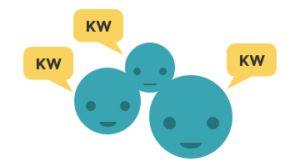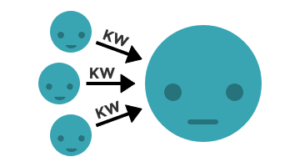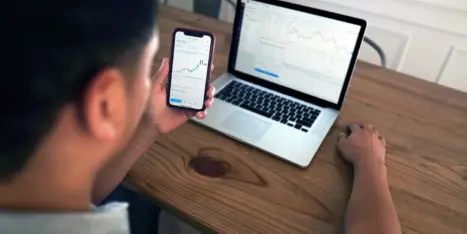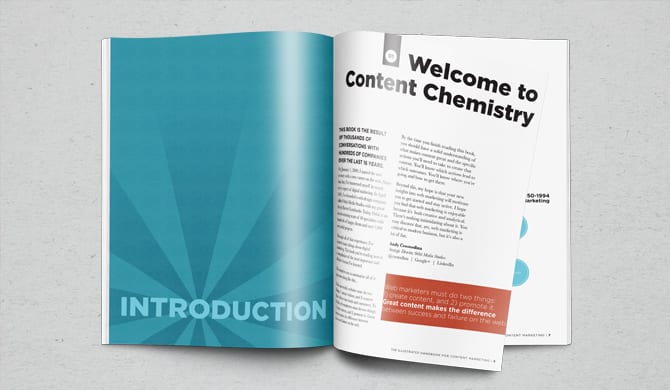Google considers more than 200 factors when ranking websites, but none are more important than links. When many websites link to a page, that page is more likely to rank in search engines. Link popularity matters. A lot.
But not all links are created equal. Keep reading, and in 5 minutes, you’ll know all about links:
- How do links work in Google?
- Why are some links better than others?
- How can I tell the difference?
- What can I do to get links and rank higher?
First things first. How do links work in Google?
Now for a little history (Don’t like history? Scroll down to the tips)
Using links to measure relevance was Google’s great innovation. It’s how they crushed Alta Vista, Lycos, and everyone else. Those search engines were easier to manipulate. SEOs just crammed in a bunch of keywords and their pages ranked higher. Eventually people noticed that their search results weren’t so relevant.
Then Google started using link popularity as a ranking factor, and rankings became harder to fake. Search results became more relevant and people noticed. Today, Google handles two-thirds of all search traffic. This dominance comes from relevance and relevance comes from links.
Links Are Credibility
 |
When another website links to one of your pages, it’s a vote of confidence. It’s an indication of relevance, and Google notices. |
 |
When many sites link to one of your web pages, even better. Link popularity works like any popularity contest. You want a lot of votes. |
 |
The best links are from sites that have a high link popularity themselves. These links are worth more. Just like a popularity contest, one vote from someone popular is worth more than a dozen votes from the unknown. |
 |
If a page is linking to several sites, the value of those links is divided. So a link to you from a page that’s also linking to all kinds of other pages isn’t as valuable. Again, in a popularity contest, if the person who votes for you is voting for three people at once, it’s not as good. You’re really only getting a third of a vote. |
Keywords: A Million Links Won’t Help Unless…
…your page is relevant for a specific topic for which people are actually searching. This is why researching keywords is so important in SEO. The goal is to align the page with a relevant phrase.
 |
Choose a keyword for which people are really searching and that is relevant to your topic. Use these keyword research tips. |
 |
You’re unlikely to rank if you don’t deliberately target a phrase. SEO doesn’t happen by accident! |
 |
You could also hurt your rankings if you overuse the keyword on the page. Keyword stuffing is spam. Indicate relevance, but don’t try too hard. Using this checklist will help. |
 |
Links from related sites are generally better. A link from a completely irrelevant site is not as valuable since that site doesn’t have as much credibility on that topic. |
Check the Competition
 |
Do the high-ranking sites for the keyword have higher link popularity than you? Then choose another keyword. |
 |
If your link popularity is low, start with a narrow niche and target longer, more specific keywords. It’s better to rank first for a less popular phrase than rank on page 50 for a big-money keyword. |
Link Text: The Words Within Those Links
The link text (or anchor text) is the word or words that make up the link. The link text for this link is “this link.” Make sense?
Lots of times, link text is simply “click here” or “www.example.com.” But when link text includes a keyword, it can be another indication of relevance. If the links to a page say “flying carpet safety” then Google is likely to believe that this is what the page is about.
 |
It’s good to have links that include the target keyword. |
 |
When too many links to a page include the target keyword, it may look spammy. Google may penalize you for “over-optimization.”Don’t try too hard to get links with your exact keyword as link text. It looks unnatural. Balance is good. |
Measuring Link Value
To see if a link from a website is valuable, look up the site on Link Explorer. This “search engine of links” shows the link popularity of any site and measures it as “domain authority” on a scale of 1 to 100. This is the size of the balls in the diagrams above! Keep in mind, the free version of this tool is limited, showing only some links and may be used only a few times per day.
Tip: It’s also valuable for checking competition during keyword research.
Trivia: The Google metric for link popularity is called “PageRank” and is named after Google co-founder, Larry Page. Because PageRank is a scale of 1 to 10, I prefer using domain authority.
How to Get Links
Google has an army of math PhDs working hard to fight anyone who tries to artificially manipulate rankings. Any spammy, unethical attempts to drive traffic to a page could be devalued or even penalized.
Here are some ways to “future-proof” your link building and SEO. Google changes their secret formula hundreds of times each year. It won’t bother you a bit. You’ll be safe and happy if you focus the natural approaches to link building.
Notice how each of these tactics has benefits beyond links.
1. Quality Content
Links happen naturally but only when the page is worth linking to. Google has told us all, time and again, that the key to ranking (and links) is great content. Just make the best page on the Internet for the topic; Google will take care of the rest.
You can deliberately create a “linkable asset,” which is simply high-quality content with a web address on your site. It could be a webpage or blog post (not a PDF), but make it something good, like original research, an online tool, or even a useful checklist or buyer’s guide. If it’s good, the links will come.
Beyond Links: Quality content is effective at getting visitors to act. It’s good for converting visitors, not just for links.
2. Guest Blogging
One of the few ethical, reliable ways to get links is to write for other websites. You will generally get a link in the “author bio,” and you may find a few opportunities to link to other pages on your site.
Guest blogging takes a lot of work, but it is an authentic strategy for link-building. Writing something good enough to get accepted by a good blog takes time. And pitching a guest post is its own skill.
Beyond Links: Guest blogging often has social media benefits. It’s good for networking, not just for links.
3. PR
I don’t mean online press releases, which do not lead to quality links (did you think Google could be fooled so easily?). I’m talking about actual mentions in the media. Press mentions don’t always lead to links, although savvy PR firms know the value and do request a link. This is also known as link reclamation.
Beyond Links: PR has obvious public awareness benefits. It’s good for your brand, not just for links.
4. Keep Your Eye Out For Legit Opportunities
If you’re part of an association or chamber, request a link. Find websites that already mentioned your business but haven’t linked. Ask nicely for the link. There are at least 131 other ways to get legitimate links. Just be aware, resourceful, and polite.
Other types of web marketing, such as social media and email newsletters, can indirectly lead to links. These traffic sources improve the visibility of your content, and some of those readers may write something and link to you.
Tip: Social activity, such as comments, sharing and +1s, may contribute directly to higher rankings, since Google may see these as evidence of quality content.
And Now You Know
If you made it this far, you now know why links matter to Google and how they can work for you. If you’re like me, you’ll never see the Internet the same way again!
By the way, Google actually wants you to understand this stuff. Google’s own Matt Cutts explains this in this video (skip to minute 7:30), and the Google Webmaster Blog is filled with this kind of SEO advice.
So be good, write well, and pay attention to your links!




